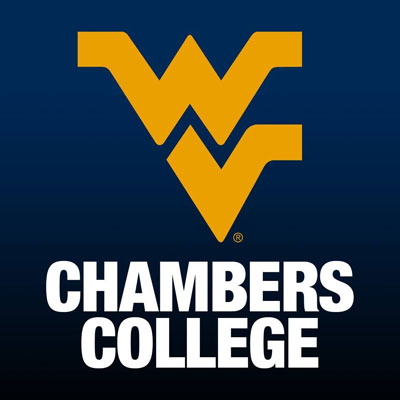It’s no secret that the College of Business and Economics at West Virginia University has made a concerted effort over the last decade to better involve its students, faculty and programs in the global marketplace through education, research, study abroad and student exchange opportunities.
To align with this effort, MBA students at B&E partnered with German graduate students in accounting and finance who attend the Münster University of Applied Sciences to tackle a case study comparing and contrasting stock markets and financial investing habits of Germans and Americans.
The semester-long project had eight teams of WVU/Münster graduate students working together through various digital platforms to examine the investing habits and subsequent marketing to respective investors; additionally, students studied regulations, hindrances and facilitation of investments in stocks in both Germany and the U.S.
Outcomes of the project included a greater understanding of cultural differences/similarities and their effect on investing habits, global networking opportunities, a greater understanding of Hofstede and Meyer Cultural Models, and an examination of other cultural differences – which furthered the students' understanding of thinking and working globally.
Nichole Benson, full-time MBA student at B&E, said it was the first time she had ever presented in this type of format.
“I enjoyed Skyping with the German students and we really had a lot of fun working on this project together. A lot of research, reading, shrugs and laughter went into this project. There were some surprises in terms of the data, but because we were able to discuss it via Skype, this allowed us to extrapolate the data with much more ease.”
The students were given a case study to fully research, uncover data, put it together and present for their peers. In Benson’s case, she said the two Münster students on her team researched the German side of investments while she and the four other WVU students on her team researched that of the United States. After doing the research for each topic, the team would meet via Skype to discuss their findings, and compare them. The team was in constant contact to work together via Dropbox, LinkedIn messaging, e-mail and Skype.
Elizabeth Vitullo, assistant dean of graduate programs at B&E, said the project was coordinated to give the students experience and show them the ins and outs of working with an international team, from the basics of scheduling meetings over different time zones to understanding the cultural differences between the two countries.
“The learning happened on many fronts; the focus of the case was personal financial practices between Americans and Germans, but the other aspects of learning – how to work with other cultures, how to work with teams through distance technology, and how to deliver it over technology – gave them experience in so many different ways,” Vitullo said. “We hope that this experience will give the students great material to talk about in a job interview, about their experience working with a team, not just an MBA experience but a global experience.
“International business curriculum is threaded throughout the entire curriculum through case studies, and some of the students who opt to go to Germany for their trip will get to meet these students. We’re helping them build this international network, which is exciting.”
B&E’s MBA students found in their research that the biggest cultural difference in Germany is that their communication is more direct, Benson said, and that Germans don’t tend to sugarcoat things like Americans seem to. The students also found that when they discussed investments in the team project, something such as a significant stock loss is communicated to investors in Germany in an astoundingly different way than it is in the United States.
Benson thought the project was an excellent opportunity for herself and her peers, as potential future business leaders, in terms of experiencing how to work with an international team
“Businesses in today’s world rarely reach out to just one small market – they are very global, and this project demonstrated that perfectly. In working with the Münster students, we received a global, real-life team experience that some working professionals do not receive until they are 10 years into their professional work experience,” Benson said. “My collaborative team learned a lot about each other in terms of what our expectations were from each other individually and culturally. We had the opportunity to globally network with incredible minds.”
Benson, as well as other MBA students who choose to visit Germany for their study abroad experience in the spring semester, will have the opportunity to meet these students face to face.
“I am an Army brat, so I was very lucky and was able to live in Germany as a child. I am extremely excited to travel to Germany with half of the MBA class and some online Executive MBAs in May 2016 and meet our German counterparts in person.”

